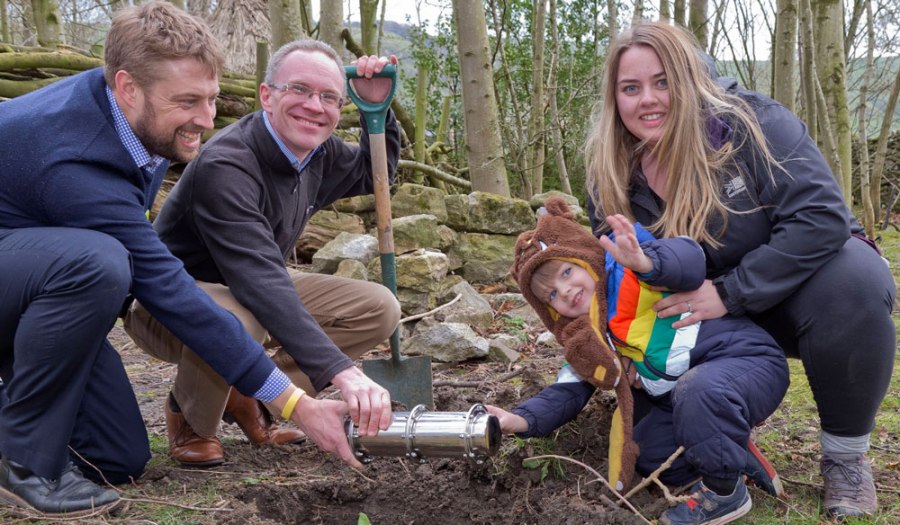70 years after an Act of Parliament was passed creating National Parks in the UK, five of the original campaigning organisations have come together once again, pledging to protect and preserve the Parks for future generations and make access for everyone easier.
Campaign for National Parks, Campaign to Protect Rural England (CPRE), the Open Spaces Society, the Ramblers and the YHA (England and Wales) made the pledge as part of a special day of 70th anniversary celebrations at Castleton in the Peak District.
Led by the Campaign for National Parks, the organisations have pledged to work together once again to make the 13 National Parks of England and Wales more accessible, as well as to campaign for strengthened protections. National Parks attract around 100 million domestic and international visitors each year, contributing millions to the economy.
Despite their status, National Parks face considerable threats from fracking, mining, quarrying, road building, military training and housing developments. Additionally, there is the further challenge to make these areas of countryside accessible for everyone.
The pledge was signed at YHA Castleton Losehill Hall, a youth hostel based in the Peak District National Park on Friday 22 March 2019. The Peak District was one of the first National Parks to be created in 1951, two years after the Act was passed.
Janette Ward, Chair of Campaign for National Parks said: “It’s absolutely brilliant that the pledge has bought together such a diversity of people who all share the same passion for the countryside. It’s a real reminder of the power we wield when we all come to together – that was the case 70 years ago and it is just as true now.”
Recent research by Campaign for National Parks and CPRE has revealed that many people face obstacles in getting to the Parks through lack of adequate public transport, cultural barriers or a lack of information. 93% of National Park visitors use a private car, creating further problems for these popular areas of countryside.
Lack of access to the National Parks means some of the most disadvantaged members of society are missing out on the associated health and wellbeing benefits. Research has shown that spending time outdoors can reduce the risk of developing depression by 30% as well as benefiting self-esteem, mental and physical health.
James Blake, YHA (England and Wales) Chief Executive, commented: “There is work to be done in making the Parks more accessible to the people who need them most. This is why YHA remains as committed now as it was in 1949 to preserving the National Parks.”
Vanessa Griffiths Chief Executive of the Ramblers, added: “Today, more than ever, we are aware of the physical and mental health benefits of connecting to nature through walking, yet for too many people, accessing National Parks is still difficult or impossible. We must continue working together to ensure that everyone, everywhere, whatever their background, is able to experience the benefits of these wonderful landscapes.”
The pledge was sealed in a time capsule along with messages of support from people of all ages who use and enjoy the National Parks. The time capsule was buried in the grounds of YHA Castleton in the Peak District.







